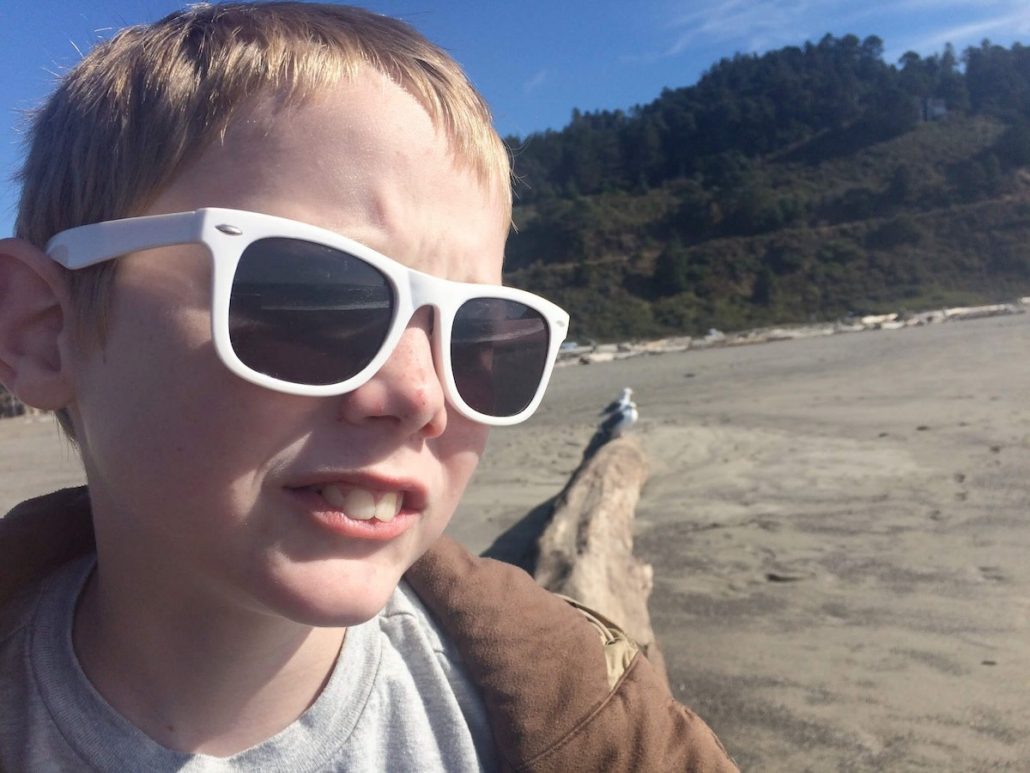Archive for month: March, 2018
Shallow Sleep and Slow, Deep Breaths
/13 Comments/by jasonIt’s early in the morning, and I’m sitting in my living room when I should still be in bed, because Jack’s OCD overtook our night again. This has been happening for weeks now. Our boy is twelve and severely autistic. In recent weeks, he’s been waking up in a panic and running into our bed seeking reassurance that the sequence of his iTunes movies hasn’t changed. We give him that reassurance, but he asks again. And again. He grabs our faces and pulls them to his ear, begging for confirmation.
“One Good Dinosaur?
“Yes, Jack, one is Good Dinosaur. Now let go of me, and go to sleep. Please!”
[Pause.]
“One Good Dinosaur?”
This movie list was something of a revelation a couple months ago. It was a haven for him; a shield of comforting words to deflect the unpredictable world around him. But he’s become dependent on that shield. Now, if he doesn’t hear his words the instant he demands them, he panics. And he wants to hear that repetition at all hours of the day and night.
Thus, the past weeks have been frustrating for my young sons who share a room with him. They have to feed him his lines or else put up with the screeching every evening. It’s been demoralizing for my girls, who often have to take care of him and keep him calm when we’re gone. It’s been exhausting for Sara and I, because we lose hours of sleep trying to console him. And it’s been maddening for Jack, too. He’s probably wondering why he can’t seem to calm down.
We’ve been through some ups and downs with our boy, but I’m not sure we’ve ever seen such unrelenting anxiety. Not for this long, anyway. We’ve never dealt with so much panic.
So what’s going on with him? We don’t know.
He’s twelve, which means he’s got new hormones beginning to pulse through his veins (don’t try and make me say the word, YOU’RE NOT MY MOM!). He also had brain surgery two months ago, and who really knows how much that might be throwing him for a loop?
We ‘re working with some good professionals, and we are all on the case together. Please understand, I haven’t come here today for medical advice, or (God forbid) for pity. We are trusting our doctors, and we’re trusting God. We’ll get through this spell. We always do.
So why am I bothering to tell you all this? Because it’s true, that’s why. And because late on, when I tell you about the good times, I want you to be able to trust me. Parenting any child, let alone one dealing with severe autism, can be a heavy task. It is beautiful. It is also, at times, terribly difficult.
What good is it, then, to pretend life is binary?
The Twitter Tragedians who trumpet despair are every bit as half-blind as the the happy-clappy Christians who pretend to be “inside-outside-upside-downside happy all the time.” Life is not one dimensional; it is full of tension. The rain falls on the just and the unjust alike. Sometimes it’s an Oregon rain: light and drizzly, with no need for an umbrella. And other times it’s a good, old fashioned Texas downpour, and you get soaked.
We’re pretty drenched right now. That’s just the truth. But we’re not hanging our heads, because we know the clouds will part. We’ve already seen bursts of sunlight, like when Emily, our sixteen year-old daughter, discovered a new coping mechanism for Jack’s meltdowns. It happened last week during an awful panic attack. It was a bad one, and she was barely hanging on herself.
 He ran into the living room, screaming at the top of his lungs, “One good dinosaur!”
He ran into the living room, screaming at the top of his lungs, “One good dinosaur!”
She caught him and wrapped her arms around him, whispering, “Deep breath.”
He listened to her. He inhaled, then blew out slowly.
“Good,” she said. “What’s next?”
“Two Dragon One!” he cried.
“Deep breath.” He obeyed again. “Good. What’s next?”
“Three Dragon Two!”
“Deep Breath…”
And on she went, all the way to “Fourteen, Up.” (Yes, we added a couple and we’re up to fourteen now, for those keeping score at home.) When she was done, he was calm again.
It was magic. My kids are magic.
So even though I won’t pretend that life is all breakfast peaches and unicorns on a Thomas Kinkade cobblestone porch, I won’t despair, either. We have hope. We’ll find a way. We’ll make it through this.
You’ll make it through your rough patch, too. The first step is to admit where you actually are. Acknowledge the anxiety. Acknowledge the pain. Pray from that place–that throbbing, sore spot. All the best prayers come from there.
And then?
Take a deep breath. You’re going to make it.
Archives
Search
Categories
Archive
- April 2023
- April 2022
- February 2022
- December 2021
- February 2021
- December 2020
- October 2020
- May 2020
- April 2020
- February 2020
- December 2019
- June 2019
- May 2019
- March 2019
- February 2019
- January 2019
- November 2018
- September 2018
- July 2018
- June 2018
- May 2018
- March 2018
- February 2018
- January 2018
- December 2017
- November 2017
- October 2017
- July 2017
- June 2017
- May 2017
- April 2017
- March 2017
- February 2017
- January 2017
- December 2016
- October 2016
- September 2016
- August 2016
- July 2016
- June 2016
- May 2016
- February 2016
- July 2015
- June 2015
- April 2015
- March 2015
- February 2015
- December 2014
- October 2014
- August 2014
- July 2014
- June 2014
- May 2014
- April 2014
- February 2014
- December 2013
- November 2013
- October 2013
- September 2013
- August 2013
- July 2013
- April 2013
- March 2013
- February 2013
- January 2013
- December 2012
- October 2012
- September 2012
- August 2012
- July 2012
- June 2012


